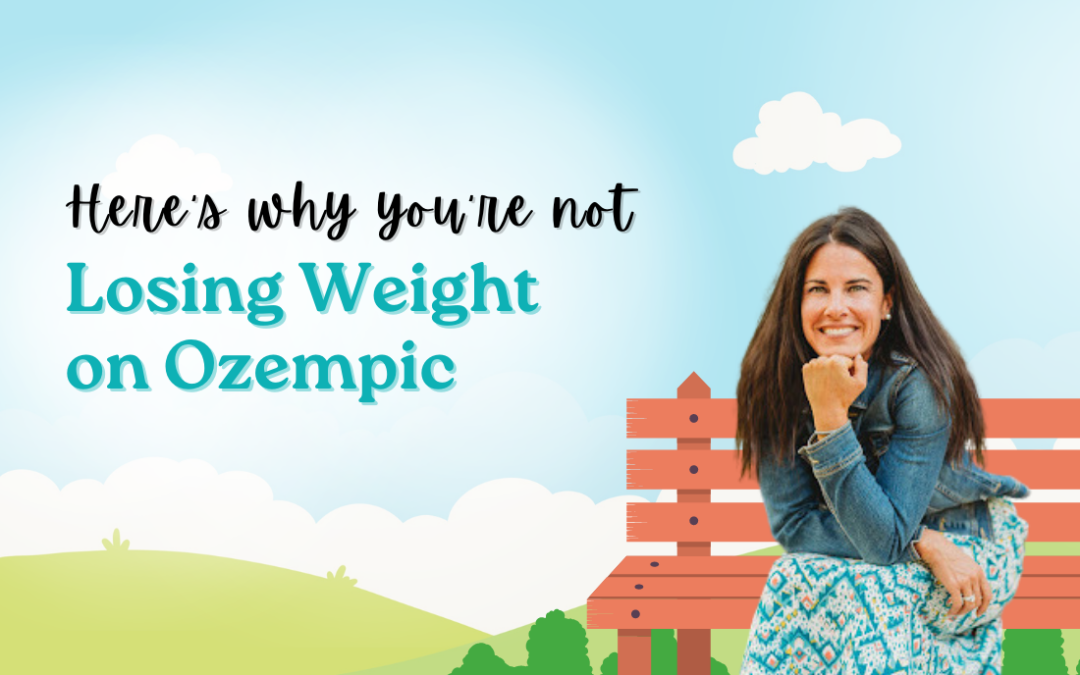Written by Jenn Hand, Holistic Nutritionist, Board Certified Health Coach, NBC-HWC
“Um, why am I not losing weight on Ozempic!?”
There are so many reasons why you might not be losing weight despite taking Ozempic, the so-called magical weight-loss drug. But in brief, there are three main reasons you might be using this medical intervention but not seeing any changes in your size or weight: the rebound effect, general side effects, and the “magic pill” illusion.
1) The Rebound Effect
This is a drug that’s meant to be taken long term. Many times, we aren’t able to stick with it forever, which can trigger the weight gain rebound effect. When we go “on” something, we typically go “off” of it. This drug is no different. If we go off it, due to side effects, financial costs, or other factors, it won’t “fix” our weight long term.
2) The Side Effects
Constipation, digestion issues and low blood sugar are all side effects from Ozempic that can impact the hormonal weight regulation cycle. If you’re feeling any of these side effects, it may be challenging to keep taking the drug long term.
3) The Illusion of the “Magic Pill”
We all want there to be that ONE thing that magically solves our weight struggle. Unfortunately, weight can be a complicated topic that isn’t typically “fixed” just by taking a pill. I know this first hand, as I took diet pills for many years in the hope that it would “fix” my weight.
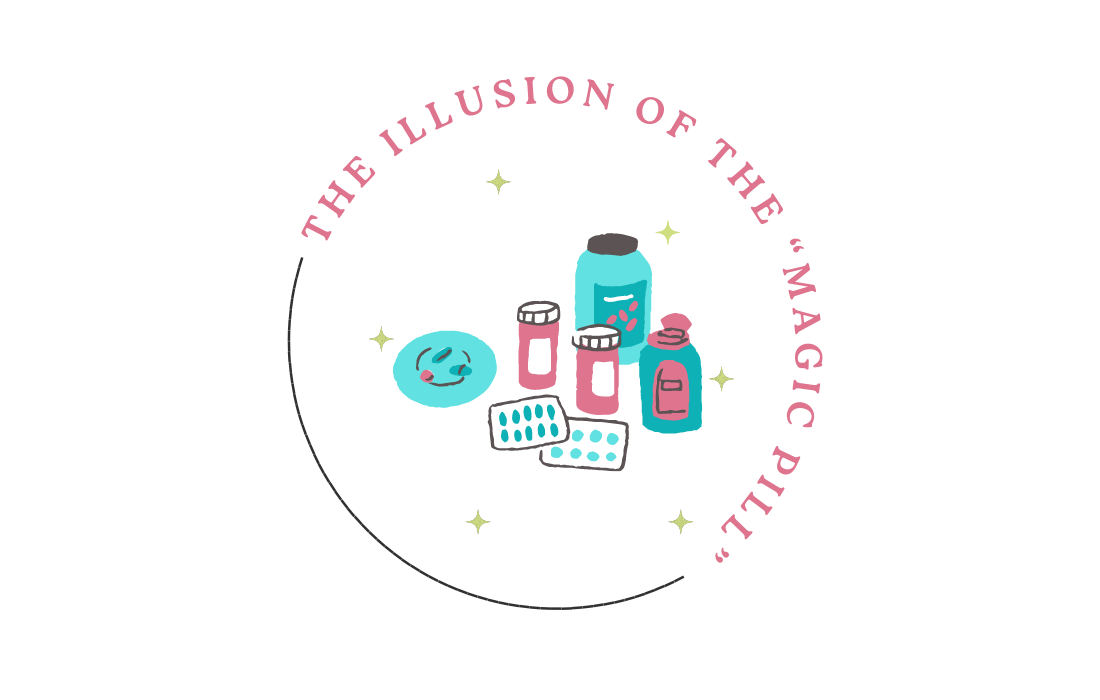
Table of Contents
- So, Should I Actually Be Taking Ozempic for Weight Loss?
- How Ozempic Works
- Some People Lose Weight on Ozempic…But How Long Does It Actually Last?
- Wait, What’s Ozempic Actually For?
- Top 7 Reasons You’re Not Losing Weight On Ozempic
- Top 10 Side Effects Experience by People Taking Ozempic
- But Does Ozempic Actually Help Most People Manage Weight Long Term?
- Can Ozempic Cause Weight Gain?
- Is Looking for Drastic and Quick Changes Healthy for You?
- Will “Healthy Lifestyle” Changes Give You the Weight (and Life) You Desire?
- How Holistic Weight Loss Knocks Ozempic Out of the Park in the Long-Term
- Why Other Diet Drugs and Pills are No Better than Ozempic
- Is a Healthy “Diet” the Answer?
- What Even IS a Healthy Diet!?!
- What Are 3 Healthy Lifestyle Changes that You Can Easily Make?
- Common Questions about Ozempic and Other Weight Loss Pills
So, Should I Actually Be Taking Ozempic for Weight Loss?
Recently, a client who had taken one of my online courses, emailed to ask me my thoughts on Ozempic.
As an emotional eating coach, nutritionist, and holistic weight loss expert, I’ve been watching the Ozempic trend, and fielding questions about this drug.
Here’s one of them:
“Hi Jenn,
My doctor is recommending I take Ozempic. I’ve struggled with my weight over the years and am now having some health issues related to being overweight. I’ve tried to lose weight and can’t seem to make it stick, so he suggested a prescription for Ozempic. The problem is, I’m not sure I want to take it! I’ve heard the side effects are bad. Plus, I know there’s so much more to my food and weight struggle than just taking a pill for it. What do you recommend?”
My opinion on the “what should I do?” questions I get via email usually involves helping someone determine what THEY really want to do. I don’t think there are “wrong” answers on the weight loss journey, and everything is just a lesson in disguise!
I did tell her that typically, for those of us who have struggled with emotional eating, overeating, and chronic dieting, “magic pills” aren’t beneficial in the short or long term. They mask the real issues behind what we are doing with food and allow us to hide behind a seemingly “easy” fix for an issue that’s very complex.
So in this post, I’m going to go over the reasons why Ozempic isn’t actually a “perfect” magical weight-loss solution, my roller coaster with weight-loss pills, and how I help women lose weight holistically and overcome emotional and binge eating without ANY dieting. That’s right, goodbye dieting and hello food freedom!
We’re also going to talk a little bit about the side effects of using Ozempic, and why it might not actually solve the real underlying problem that’s impacting weight gain and that feeling that your body is the “wrong” weight or size.
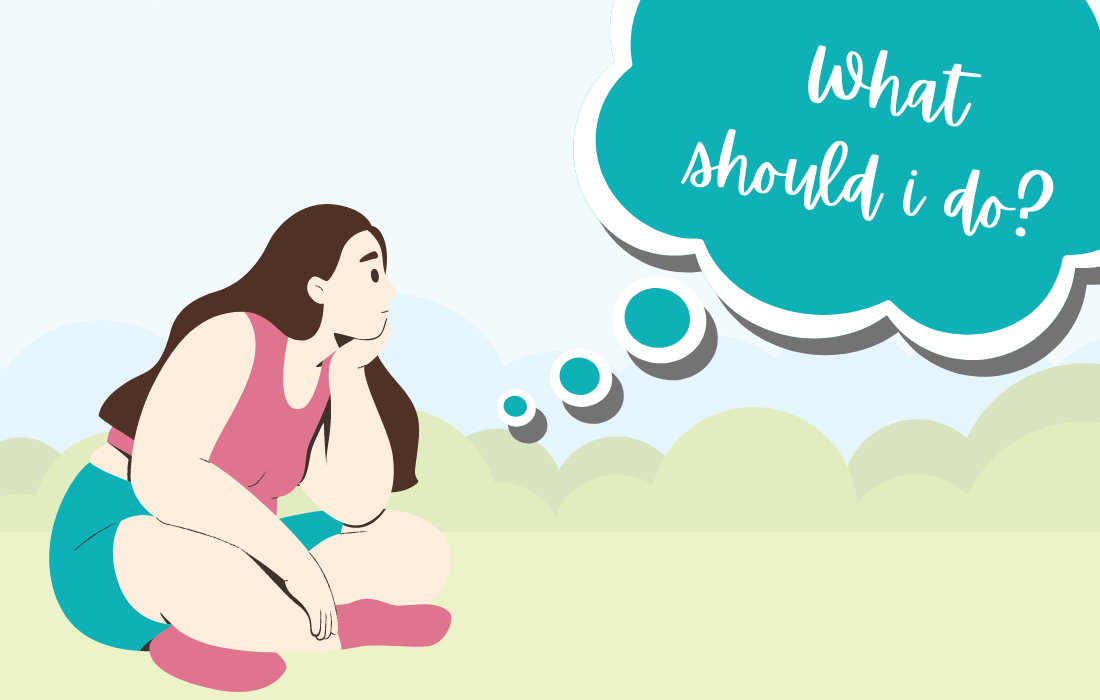
How Ozempic Works
In the simplest terms, Ozempic works by making you feel full.
The main ingredient in the drug is semaglutide, which when taken, increases the feeling of satiation and, over time, can suppress the appetite. It mimics the naturally occurring hormone that will signal to the brain we are “done” eating. Typically, it’s a weekly injection that was originally intended for those with type 2 diabetes. It was never approved specifically for weight loss, but over time, many people discovered this side effect and have used it for that purpose.
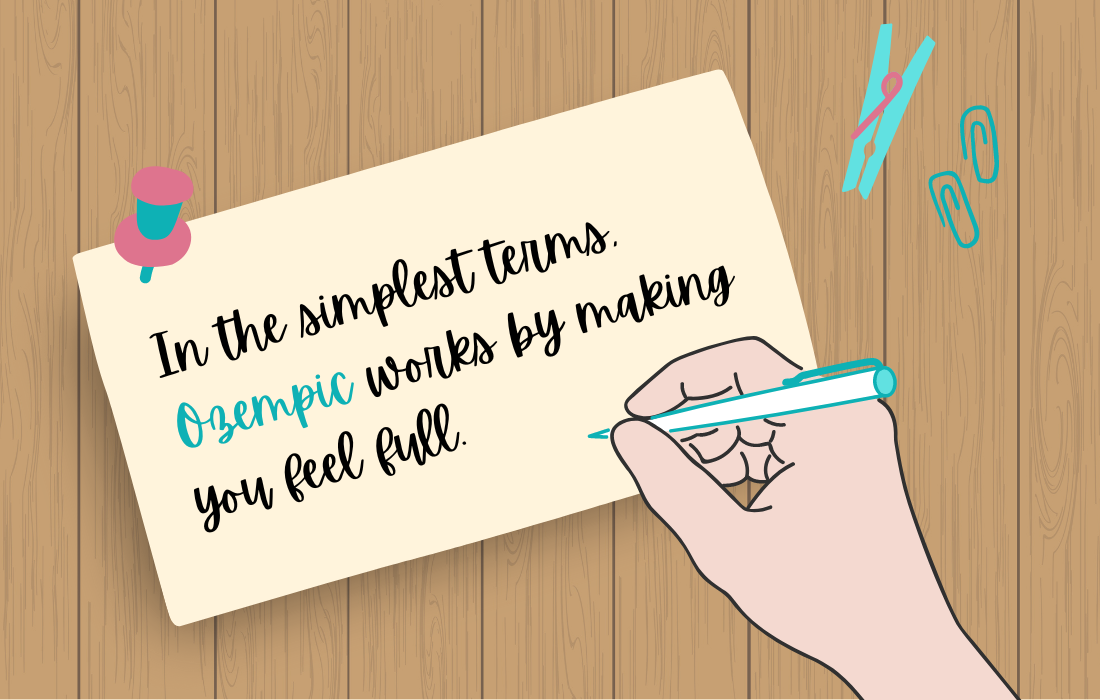
Some People Lose Weight on Ozempic…But How Long Does It Actually Last?
The challenge of using this drug for weight loss is that it was intended to be taken long term for people who have type 2 diabetes. So if someone is taking it just for weight loss, they usually can’t sustain it long term due to the side effects, impact on health, financial reasons, or other lifestyle implications.
In a recent study published in the Journal of the American Medical Association, their findings showed that people did lose weight taking it at the 3 and 6 month mark. However, there was no long term study to see if those individuals actually kept the weight off after a year or more or if they ended up stopping the drug.
One of the struggles I hear from women all the time is the sustainability of weight loss.
How do you find a sustainable approach to losing weight? Something that doesn’t involve a pill, severe restriction, or unrealistic exercise habits? That’s the key to finding the path to your body’s happy weight. It has to be realistic and sustainable. Most people end up regaining the weight they lost after they stop taking Ozempic.
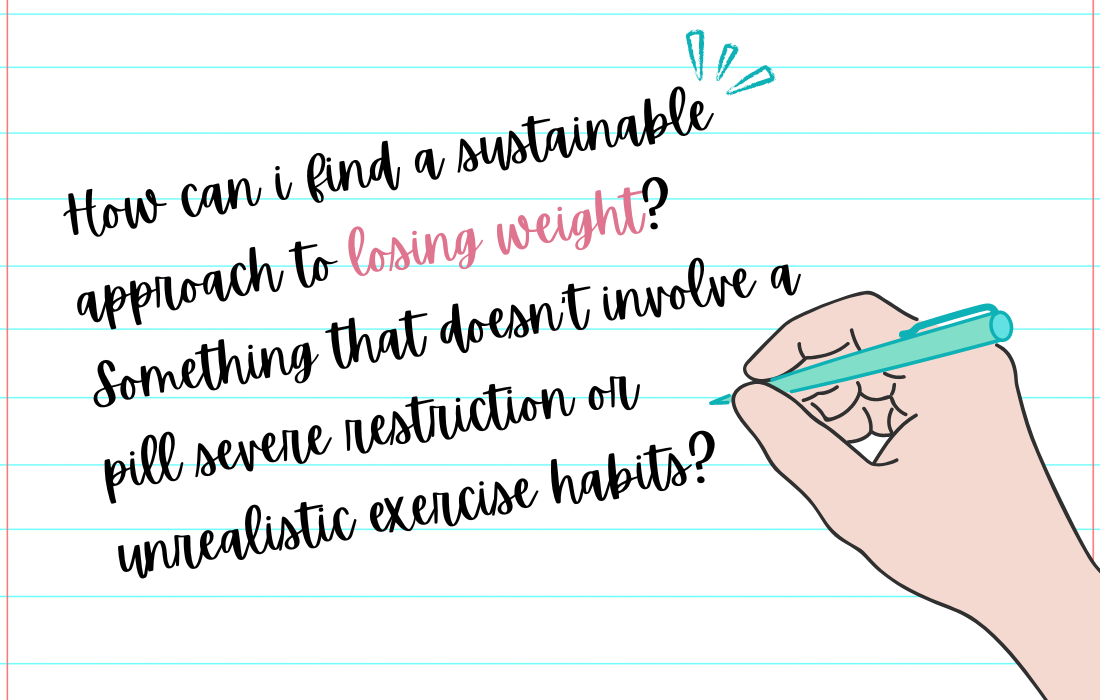
Wait, What’s Ozempic Actually For?
There’s been so much hype over Ozempic lately that it’s easy to forget the original intention of the drug. It was originally designed as an FDA approved medication for type 2 diabetes or for people with a BMI over 27 with health related conditions. It was never created as a quick weight loss drug, but as the shortage of Ozempic continues to rise, more and more people are using it for weight loss rather than a medical reason.
Top 7 Reasons You’re Not Losing Weight On Ozempic
1. Weight Loss is Complicated
We’ve been taught that losing weight is easy, and if we can’t stick to something, it’s our own fault. In reality, we are not just robots, eating kale smoothies and baked chicken. Food is complex because it can soothe stress, comfort, reward and be a “fix” for 100 other things. Losing weight has a number of different factors that can impact the process, including stress, food, genetics, metabolism, hormonal imbalances, muscle mass, and more. It’s not as simple as it seems!
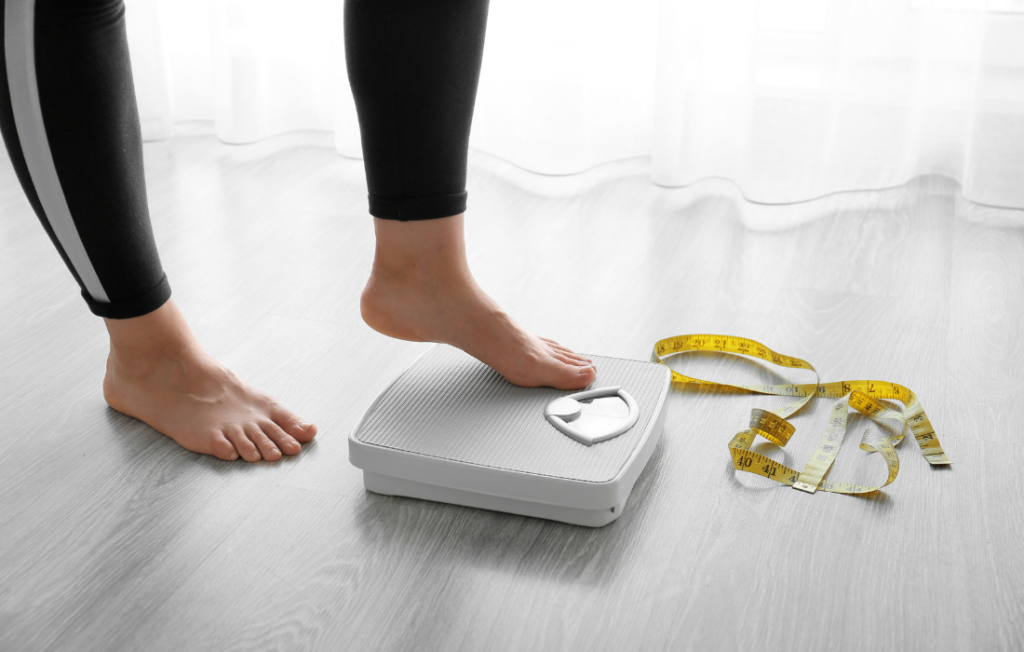
2. Emotional Eating and Binge Eating Is Something You Struggle With
I’ve worked with a number of women who have tried Ozempic (or who have wanted to try it!) They come to me frustrated because “everyone else is losing weight” on the drug. If you struggle with eating emotionally or occasionally bingeing, it can be challenging to lose weight without dealing with those issues.
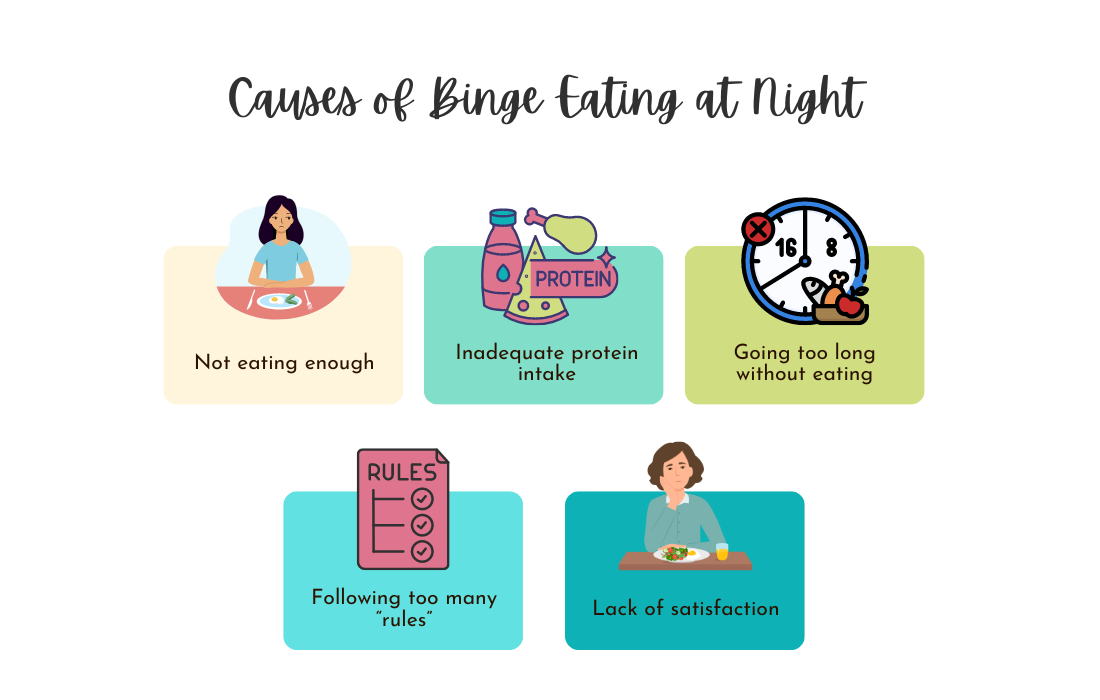
3. Stress Levels are Through the Roof
Stress has a huge impact on weight! Chronic stress can slow fat metabolism and make it challenging to lose weight. When stress hormones are released in the body, it elevates cortisol levels, which can increase cravings for sugar and fat. If we don’t learn how to deal with stress, it may have a negative impact on weight.

4. Underlying Hormonal Imbalance
Our hormonal system plays a huge part in regulating our weight. When I had some issues with my adrenals, I gained weight. My body didn’t release that weight until I healed my adrenals. If the thyroid, adrenals or other hormone regulators in our bodies are imbalanced, that can hinder weight loss. Stress, toxins, a highly processed diet, disordered eating, and a number of other factors can impact hormones.
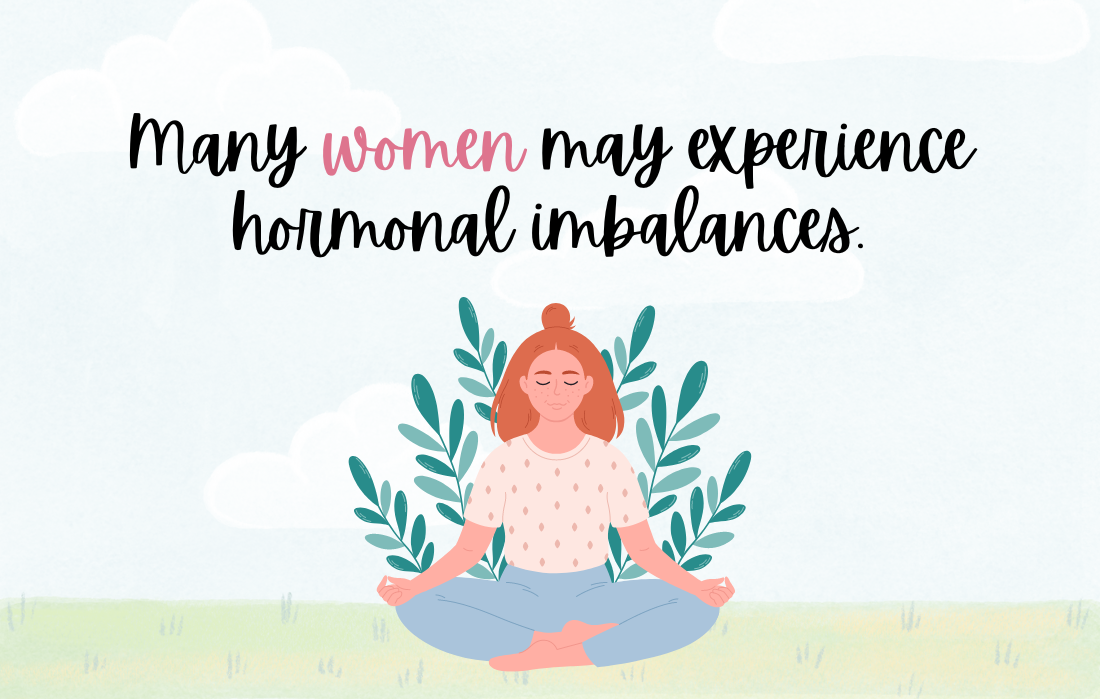
5. Eating Food that Doesn’t Leave You Feeling Satisfied
When I was dieting or trying to “eat clean”, I would only eat “good” foods. Usually only eating a restrictive diet, even if it is very healthy, can backfire. We aren’t able to stick to it long enough. To have something “work” long term, it needs to be sustainable. Satisfaction is a prerequisite for that sustainability!

6. Not Enough Protein
Eating enough protein has a number of benefits and it can aid in the weight loss journey. If you don’t eat enough protein, you may not feel as satiated after meals, which can lead to overeating later. Protein helps slow down digestion, keeps the blood sugar even, reduces cravings, and builds muscle!
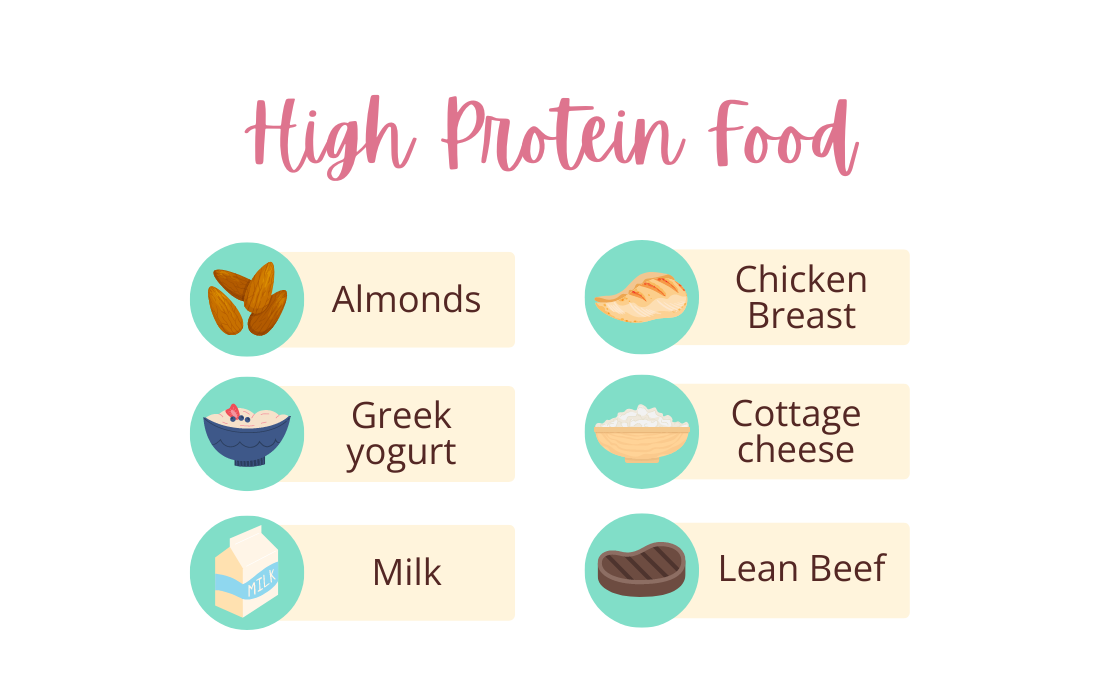
7. Not Dealing with the Emotional Causes
One of my biggest battles was around emotional eating. I tried a million diets (116 to be exact!), but nothing worked. One of the big reasons was that I had learned to deal with life by using food. Whenever I was heartbroken, bored, lonely, frustrated, angry or (insert any other emotion here), I would eat. Learning how to deal with the emotions that send us to the food can be hugely helpful on this path.
Top 10 Side Effects Experienced by People Taking Ozempic
So, is taking Ozempic worth it? It can depend on the intention of why you’re taking the drug, but keep in mind the drug can cause serious side effects.
Most common:
- Nausea + vomiting
- Diarrhea
- Stomach pain
- Constipation
Other possible side effects:
- Thyroid tumors
- Inflammation of the pancreas
- Changes in vision
- Low blood sugar
- Kidney + gallbladder problems
- Allergic reactions
One thing missing from taking Ozempic is addressing the emotional, mental and spiritual side of food and weight. Typically, those of us who have struggled with food have underlying reasons relating to why we eat and how we use food. Without addressing these issues, it’s hard to find lasting change. (I’m speaking from experience, as someone who was taking 24 diet pills per DAY in an attempt to fix my food and weight battle.)
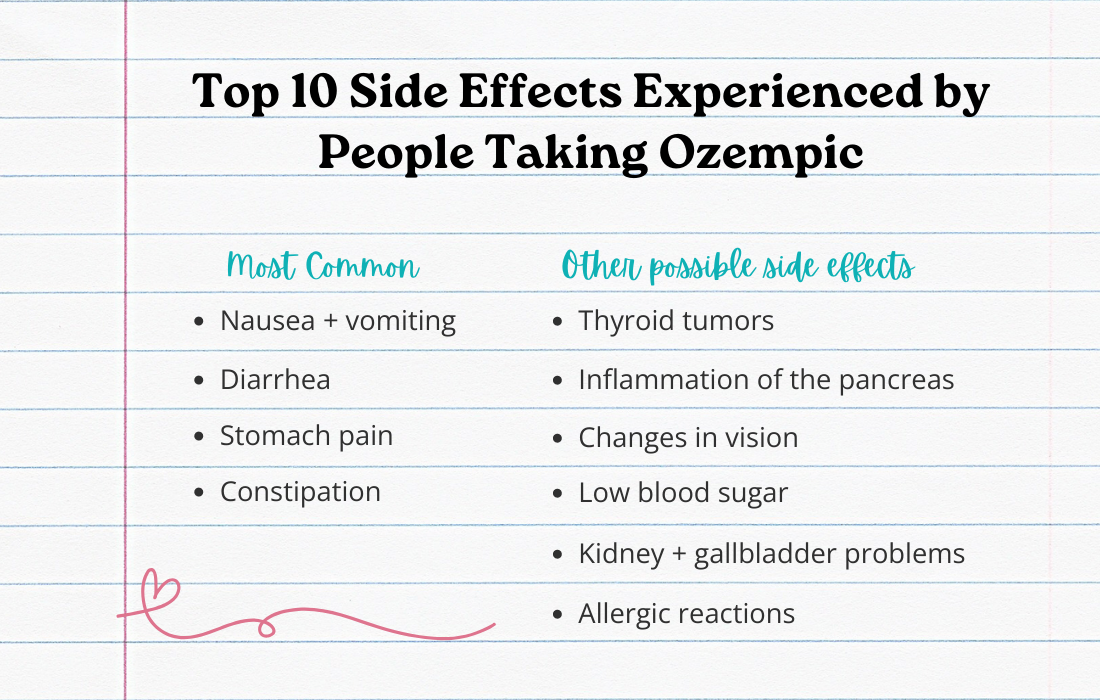
But Does Ozempic Actually Help Most People Manage Weight Long Term?
Ozempic is a relatively new craze, so there hasn’t been years or decades of research to understand how it manages weight long term. Since it was studied as a drug to help those with type 2 diabetes, there’s no evidence that it helps people with weight loss in the long run. In fact, the scarier thing is that since there are so many side effects, it may not even be safe for the average person to take it long term.
It’s too new to have any data but it has been causing many side effects for people after just a few days on the drug. If we use something to mask our habits of overeating/bingeing, emotional eating, not taking care of ourselves, battling stress, and not living a healthy lifestyle, it will be challenging to have something “fix” us.
Can Ozempic Cause Weight Gain?
In the clinical trials of Ozempic, most people lost weight. However, a few people DID gain weight, although it’s not been known to typically cause weight gain. People may experience other side effects that cause them to stop taking the drug and gain the weight back. Additionally, it’s not a magic pill, so those taking the drug are encouraged to change their lifestyle habits while they are on the drug.
If they aren’t working to eat and move in a nourishing way, the drug may not work.
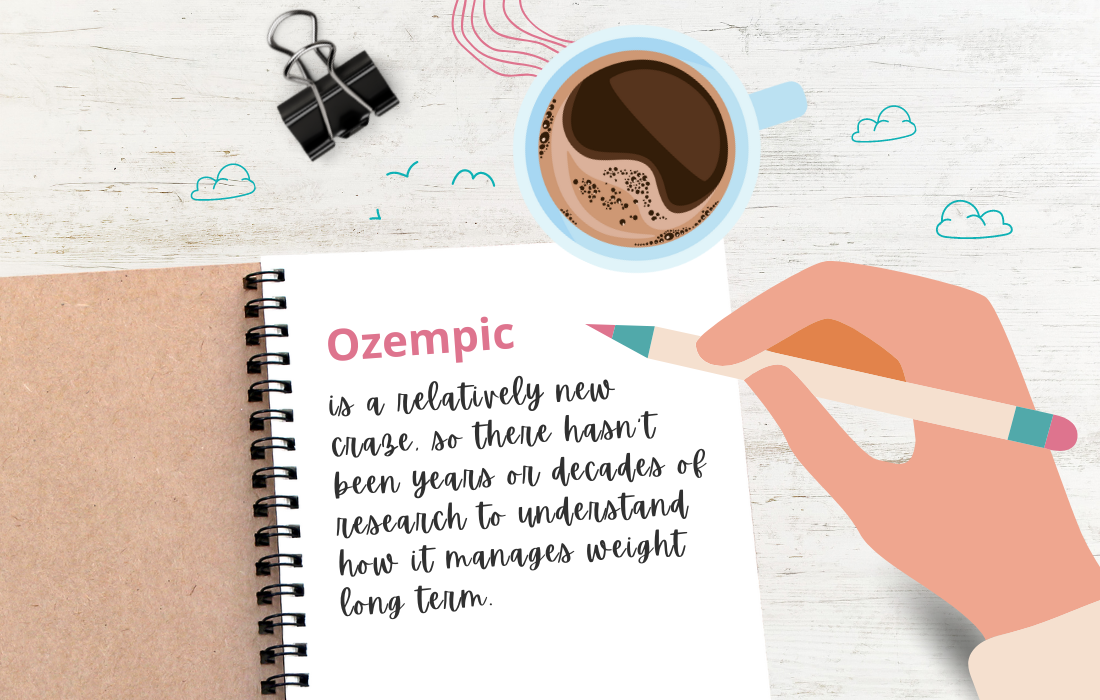
Is Looking for Drastic and Quick Changes Healthy for You?
When I was 23 and taking 24 diet pills per day, I would have said yes to this question. I was so wrapped up in my obsession to lose weight and “fix” my overeating, that I wanted an instant fix. The reality was, that no matter what quick fix I tried, it never gave me lasting results.
Nothing quick and easy ever helped me feel sane and balanced around food or allowed my body to settle at a comfortable weight. We may think we want the quick fix because it’s tempting, but explore what it is that you deeply desire and reflect on whether a quick fix will give that to you.
There are no right or wrong answers, it’s more an exploration of looking at what it is you really want long term.
Will “Healthy Lifestyle” Changes Give You the Weight (and Life) You Desire?
For those of us who have battled food and weight for years, decades or a lifetime, it may take time to unravel some of our habits and patterns around food. Many times, the experience we’ve had with weight loss has been done the “old way” via dieting. So we believe there is only one way to lose weight: deprivation, restriction or taking something like Ozempic.
But what if there is another approach?
An approach where you can heal your underlying struggles with food and allow your body to rebalance back to a comfortable size? Enter Holistic Weight Loss!
How Holistic Weight Loss Knocks Ozempic Out of the Park in the Long-Term
Holistic weight loss is a multi-pronged approach to weight. It’s looking at not just the food, but the physical, mental, emotional and spiritual aspects of food, body and weight.
Holistic weight loss is:
- taking a look at how and why we are eating
- diving deep into the food rules we learned and what actually works for our bodies
- healing the emotional reasons why we eat and learning to cope with life without stress or boredom eating
- understanding how to treat our bodies in a way that allows our bodies to be at its most comfortable size
While this may be the path less traveled, it is indeed the path that gives us lasting, sustainable results. One downside of the quick fixes is the feeling of failure and hopelessness after we’re done.
We get to the end, the weight comes back on, and we feel even more terrible about ourselves than before. With holistic weight loss, there is no “on” and “off”, it’s simply a process to keep tweaking and refining as you get to know your body better!
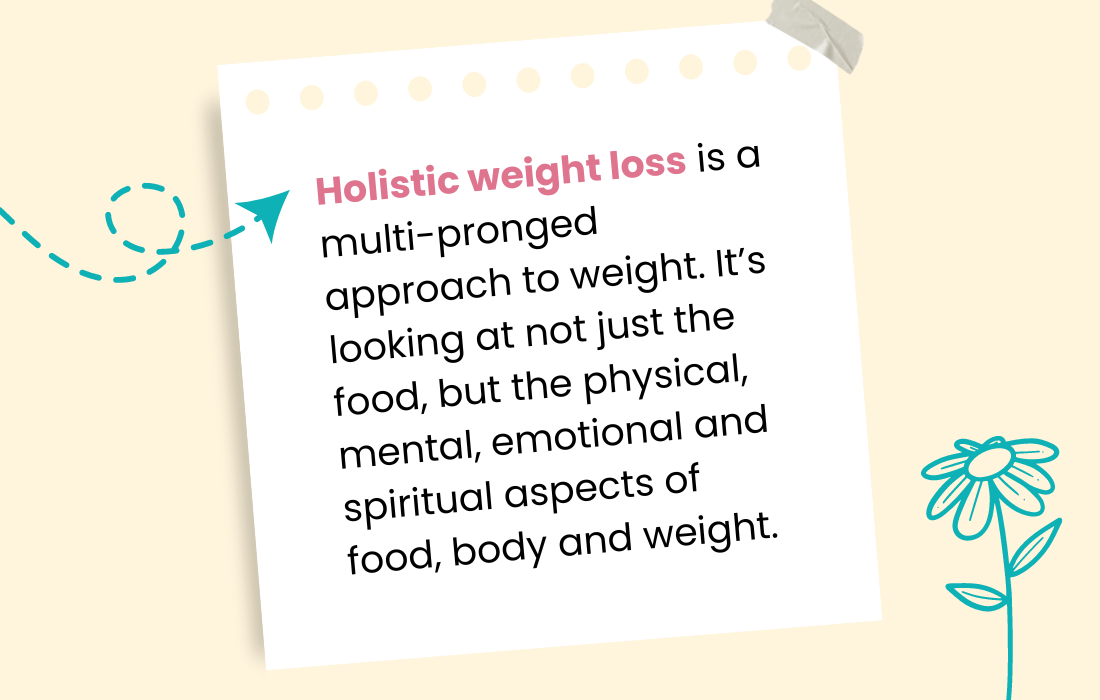
Why Other Diet Drugs and Pills are No Better than Ozempic
For about 4-5 years, I took Ephedra and Metabolife diet pills. At one point, I was taking 24 a day, before I realized I had a problem and needed help. My tolerance got higher and higher, and the effects wore off. They began to give me heart palpitations and severe anxiety, as I felt more and more out of control.
Although drugs and pills seem like an answer when “nothing else has worked”, they mask what our real struggle is. The deeper, lasting solution requires looking at habits and patterns rather than just taking a pill.
Is a Healthy “Diet” the Answer?
Personally, I’ve taken the word “healthy diet” out of my vocabulary. I spent 13 years dieting (or trying to diet) and for many people, it can come with a lot of “shoulds” and rules. When I think of a diet, I think of strict rules, labeling food as “good and bad”, beating myself up, willpower and a lot of pressure.
To me, a healthy way of eating is learning to find the balance of eating nutritious foods, feeling satisfied with what you do eat, and having the right amount of freedom to feel like it is sustainable for the long haul. You can eat intuitively, learn to honor your body and find a balance of structure and boundaries.
I work with many women who don’t want to diet, but do want to lose weight, and we work through the “right” amount of guidelines and structure with freedom and permission.

What Even IS a Healthy Diet!?!
Maybe you’re starting to think that a “healthy diet” is a better option than taking Ozempic. OK, but what does that even mean? Is one woman’s healthy diet another woman’s unhealthy diet? We’ve internalized SO many rules over the years about what’s healthy, what’s not, what we should be eating, and what we should stay away from.
To me, eating healthy is learning how to listen to YOUR body and to use both your mind and your body together to find a balanced way of eating. Intuitive “normal” eating is unique to each person. Your body may do better with more protein and less starchy carbs. Another person might be really impacted by sugar.
Someone else may be emotionally eating every night and need to heal that pattern. Someone else might be using crave-y snacks as a de-stressor in a busy life. It all depends on where you struggle and what you need to heal from, but the main theme is that it is about learning what works for YOU!
What Are 3 Healthy Lifestyle Changes that You Can Easily Make?
Here are some areas to focus on to practice in your daily life that will aid in your weight loss journey:
- Focus on adding protein every time you eat.
Since protein takes longer to digest than carbohydrates, it keeps your blood sugar even, cuts down on cravings, and helps you feel satisfied longer. Experiment with adding seafood, meat, poultry, lentils, beans, eggs, beans or soy products to your meals and snacks! This is a great way to have a little bit of structure without it feeling restrictive.
- Explore your evening eating habits.
The evening is what I call the “witching hour.” It’s usually where most of my 1:1 clients struggle to keep their snacking in check. I really struggled with overeating at night and was one of the things I worked on the most during my journey towards feeling normal around food. Take a look at what and why you’re eating. You can food journal if you’d like, but instead of weighing and measuring, write down what you feel every time you eat. You may be surprised that stress, boredom, overwhelm, resentment or any other number of emotions impact how you’re eating!
- Aim for one mindful meal a day.
Oftentimes, we’re going so fast in our days and we’re so busy that we don’t even register what it is that we eat, if we’re satisfied, and how food impacts our energy and bodies. Explore eating mindfully for one meal or snack. This can mean a number of different things, but overall, it’s eating without distractions. So perhaps you put your phone in a drawer, turn off the podcasts or TV, sit down without multitasking and pause a few times during the meal. See what comes up for you as you experiment with this!
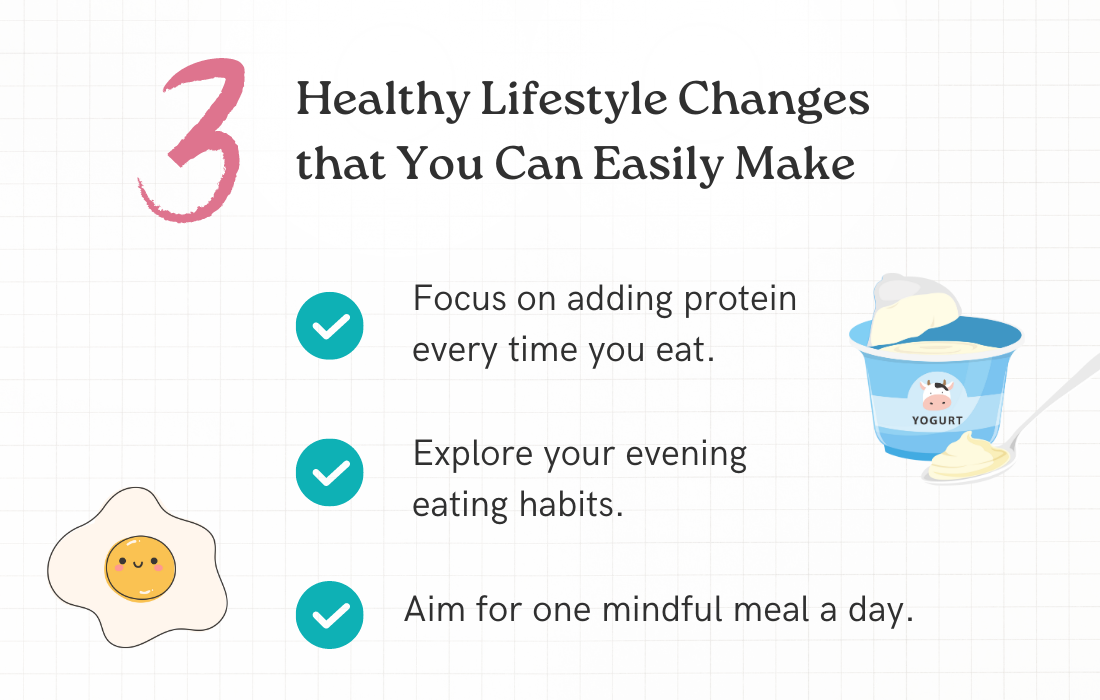
Common Questions about Ozempic and Other Weight Loss Pills:
Is a weight loss plateau actually a thing?
A weight loss plateau can be immensely frustrating! It can definitely happen and it may be helpful to explore more deeply with a professional to look at how you’re eating, hormone levels, and other lifestyle habits that may keep you stuck.
Should I keep taking Ozempic for weight loss if I’m not losing weight?
I recommend stopping the drug and seeking further support and guidance on holistic weight loss.
Are diet pills bad for my health?
Long term, diet pills can cause dizziness, high blood pressure, a racing heart, constipation, and insomnia.
So What Do You Think?
What are your thoughts on taking Ozempic after reading this article? I’d love to hear your thoughts on your own weight journey and how you’ve been impacted physically, mentally or emotionally by the craze of this new drug.
And, if you’d like more support from a coach, then scroll down to learn more about how I can help.
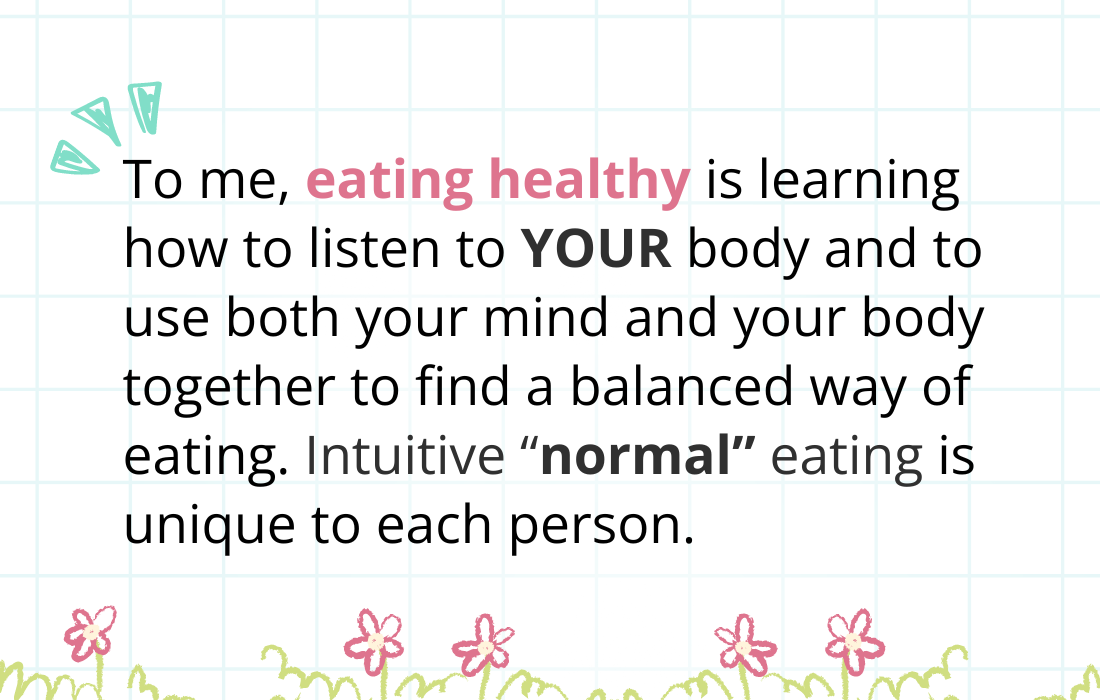
Summary of Key Points:
- While Ozempic has been the new “hot” weight loss drug, it’s been proven to have significant side effects, including nausea, constipation, diarrhea, stomach problems and other more serious health issues.
- Many people struggle to lose weight on Ozempic due to weight loss being complex, stress levels impacting hormones, emotional eating keeping weight stuck, and the lack of sustainability taking the drug long term.
- Explore whether or not “quick fixes” are what you want. If you eat emotionally, have struggled with your weight or food for years, and/or have been stuck in the diet/overeat cycle, other options may work better for sustainable results that you are seeking.
- Weight loss is complex and is often better looked at through the lens of holistic weight loss. This takes into account your physical, mental, emotional and spiritual sides and involves learning how to listen to your own body and what way of eating works for you.
- Three lifestyle changes you can make today are adding protein every time you eat, exploring your evening eating habits, and aiming to eat one mindful meal a day.
More Articles About Holistic Weight Loss
⚪ How to Get Off the Diet Roller Coaster
⚪ 7 Myths of Weight Loss
⚪ If You’re Not Dieting, How Will You Lose Weight?
⚪ Yo-Yo Dieting and Weight Loss
Get the Normal Eater’s Newsletter
Join 8000+ women who are overcoming overeating, binge eating, and breaking up with dieting forever. Get Jenn’s inspiring and actionable weekly newsletter with the latest posts, podcasts, and tips on how to love your body, find food freedom, and lose weight holistically.
Get the Normal Eater’s Newsletter
Work with an Emotional Eating & Holistic Nutrition Coach
Overcome Bingeing and Emotional Eating, and Break Up with Yo-yo Dieting
Working with an emotional eating coach and holistic nutritionist can help you get free from the frustrating binge and restrict cycle and stop yo-yo dieting.
You don’t have to be obsessed with food or have a million rules around eating to find your natural weight and learn to love your body. Ready to actually see a lasting change and experience true freedom?
Schedule a 20-min CallAbout the Author:

Jenn Hand has been helping women like you become normal eaters since 2015.
She’s worked with thousands of women, helping them to balance their bodies, end bingeing, stop obsessing over food, and start feeling amazing again. As a board-certified health coach and holistic nutritionist, Jenn knows how to support you in making real positive changes that last.
Her articles have been published on Mind Body Green, Tiny Buddha, Thrive Global and other local and global media platforms. She’s the author of How to Be a Normal Eater and the creator of The Normal Eater’s Club program. Listen to Jenn’s advice and tips on the Cake Doesn’t Count Podcast, or read more of her articles for free on the Food Freedom Blog.
Learn About Coaching!
